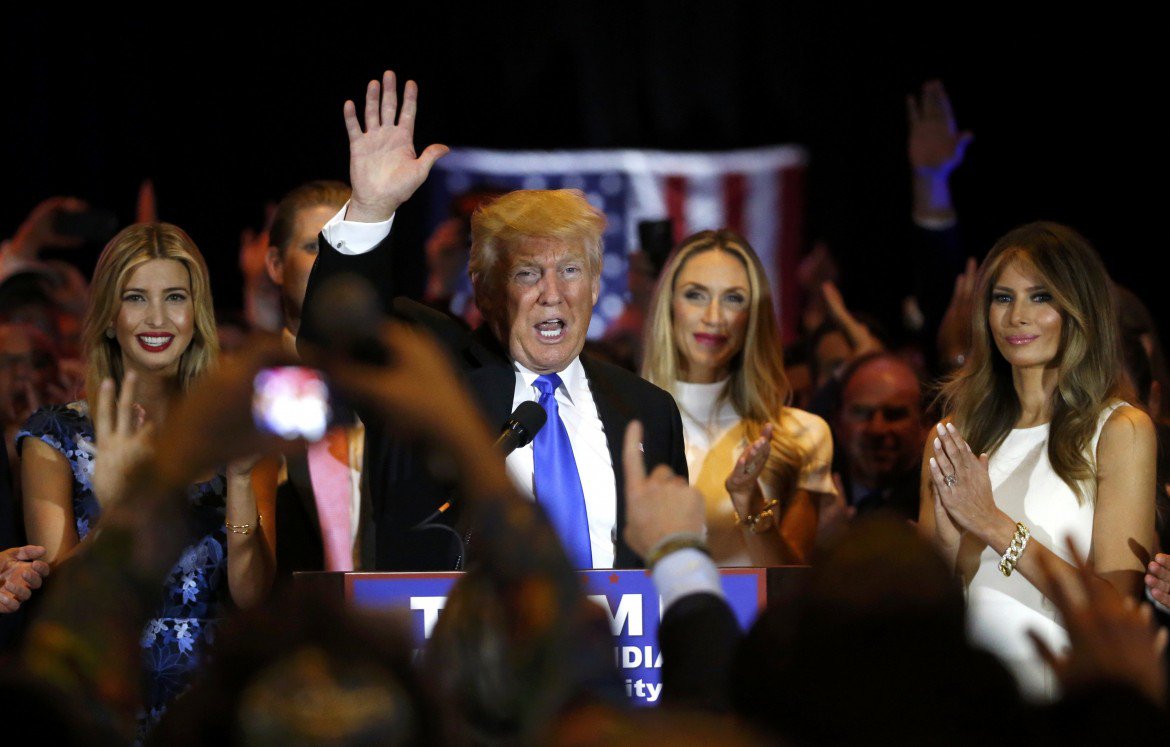Commentary
Trump’s nomination will test the character of a nation
Indiana was the Fort Apache of the conservative Republicans, leaving a general election that will strain the country’s unity.

Perhaps the most unusual primary election in modern U.S. history is over a month in advance. On a May evening in Indiana, the unthinkable happened — or at least something no one could imagine a few months ago. The party of Lincoln (which a century ago became the party of capitalism and the American conservative right) has been conquered by a populist revolt fired up by a building speculator, the arrogant reality TV star.
Donald Trump is a post-Berlusconi figure who has improbably scaled the heights of a political party fallen victim to a profound identity crisis, a party establishment that is running on empty, which over the Obama years, despite enjoying a majority in Congress, has been able to express only a sterile, dull filibuster and sow exasperation among its voters.
After yet another setback, Ted Cruz, the last plausible opponent to Trump and survivor of a group which once included 17 contenders, threw in the towel. His surprise announcement on Tuesday (“it appears [a viable path to victory] has been foreclosed”) paved the way for Trump’s coronation. His forfeit was followed Wednesday, inevitably, by that of John Kasich, the ineffective champion of the moderate old guard.
Indiana was the Fort Apache of the GOP’s “conservative” wing — the last chance to slow Trump’s sprint toward victory — but the rebels have swept the last barricades. Although Cruz had not had a realistic chance of victory for some time, his announcement took everyone by surprise, including Trump, who had to change his speech to praise “the courage” of his opponent, the same one he had insulted in every possible way just a few hours earlier (at last insinuating that Cruz’s father may have taken part in the assassination of John F. Kennedy!).
In fact, it was assumed that Cruz had been angling to undertake a disruptive tactical action in the remaining states in order to prevent Trump from winning the 1,237 delegates needed for an automatic nomination, and then try to drum up support at the nominating convention in Cleveland next month.
Paradoxically, the Democratic Party primaries are more likely to be contested at the Philadelphia convention. Bernie Sanders beat Hillary Clinton in Indiana and collected his 18th win of the primaries. It is impossible to beat Clinton, but unlike Cruz, Sanders represents a vital ideological movement, not a calcified rearguard. Because of this, he does not seem ready to end his battle.
The primary proportional system provides a mathematical winner. But Sanders, who has collected more than 40 percent of the popular support, is fighting a political battle. His logic is proportional, and he aims to include in the party platform the voice of a progressive wing revitalized by his campaign. His supporters demand a space for idealism in the election gears that operate on the basis of strategic calculations and engineering of consent on which Clinton’s electoral advisers and strategists are already working.
Sanders has galvanized the Left and especially young people, that “future of the country” to which he referred in his victory speech. They were a key component of the Obama coalition. For Clinton, it would be foolhardy to approach her unpredictable confrontation with Trump without taking into account the demands of this political segment.
At this point, the major unknown concerns the Republicans. A few minutes after Cruz’s withdrawal, Reince Priebus, chairman of the GOP’s Central Committee, sent a tweet declaring Trump the unofficial candidate and inviting all Republicans to support him. But it is far from sure that the sectors close to his many former competitors will do so. It is also unclear whether historical leaders of the party like Mitt Romney, John McCain and Jeb Bush will line up behind Trump, who openly reviled them until Wednesday.
What ultimately will the Wall Street capitalists and the religious fundamentalists do? Until Wednesday they were the pillars of the Reaganite and neocon coalitions, now deprived of authority by the populist horde incited by Trump. And will the independent, angry and indifferent be motivated enough by Trump’s hardcore gospel to offset the “never Trump” Republicans who prefer to abstain rather than vote for him?
On the other hand: How vulnerable will Clinton be in the face of anti-political demagoguery of an “asymmetrical” opponent who operates outside of the schemes and the dialectic? This is an aspect in which the former secretary of state is at a disadvantage. In the year when intolerance triumphs against the established system, she is the exponent of the political caste. Conversely Trump, the candidate of a party that has done everything to try to avoid it, expresses the xenophobia, racial resentment, anti-intellectualism and all the repressed discomfort that the party wanted to exploit in the past.
This U.S. presidential election drags the country into the unknown and looms as a test tube of the retrograde wave pressing on the banks of all the Western democracies.
As Senator Elizabeth Warren said: “What happens next will test the character of all of us — Republican, Democrat and Independent. It will determine whether we move forward as one nation or splinter at the hands of one man’s narcissism and divisiveness.”
Originally published at http://ilmanifesto.info/forfait-di-cruz-e-kasi-ora-trump-e-il-candidato-del-gop/ on 2016-05-05
